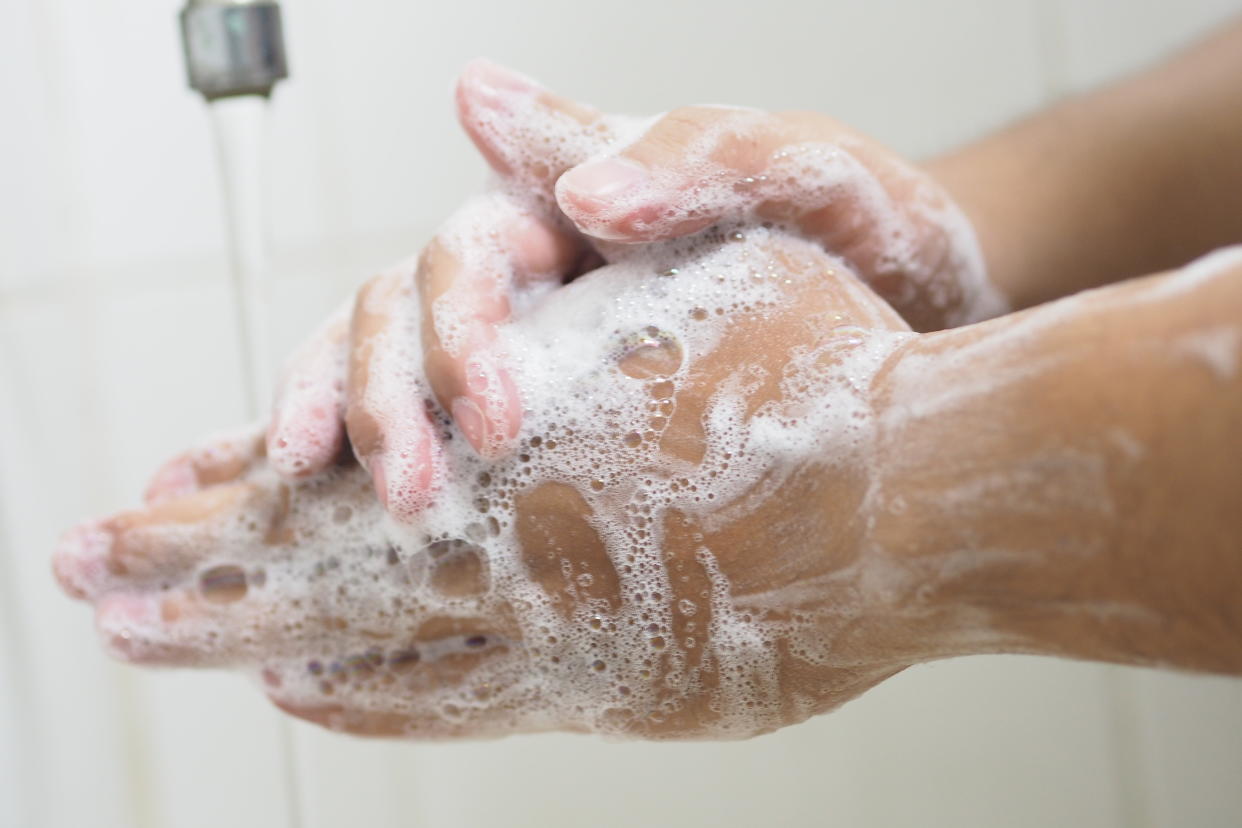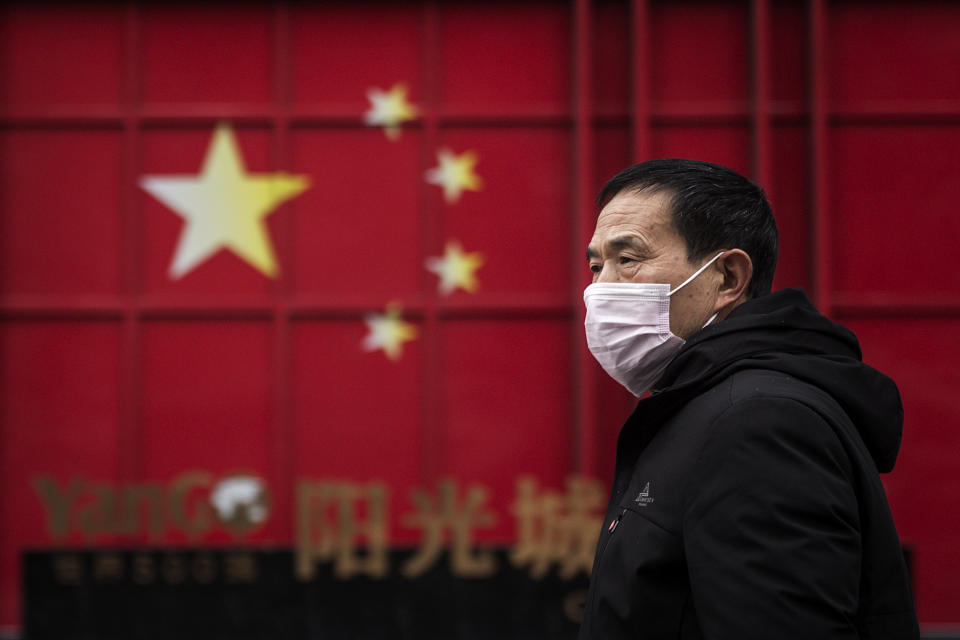The best thing you can do to ward off coronavirus

The coronavirus has spread well beyond its epicentre in the Chinese city of Wuhan having now reached at least 27 countries.
The virus has already killed more than 2,700 people, mostly in China – where it first emerged in December – and infected more than 83,000 in over 45 countries.
While the vast majority of incidences are in the Asian country, there are 23 confirmed cases of coronavirus in Australia.
Given the risk of spread experts stress the importance of hand washing to stay virus-free.
The World Health Organization (WHO) recommends washing hands “frequently” with soap and water to “eliminate the virus if it is on your hands”. An alcohol-based sanitiser can also be effective if the hand is not “visibly dirty”.
What is the best way to wash your hands?
When you go to wash your hands, it is advised you first wet them under running water.
While it does not specify the ideal temperature, New York's Division of Military and Naval Affairs states it should be “as hot as you can comfortably stand” - typically at least 38°C.
Next, apply enough soap to cover both hands. Rub your hands together to create suds.
Use one hand to rub the back of the other, cleaning between the fingers as you go. Repeat with the other hand.
Rub your palms together, as well as the back of your fingers against your palms.
It is important not to forget your thumbs, which should be rubbed using the opposite hand.
The tips of the fingers should also be rubbed against the palm of the other hand.
The whole process should last around 20 seconds - the time it takes to sing Happy Birthday twice.
Finally, rinse your hands under running water, before drying them with a disposable towel.
Wet hands are said to “transfer viruses more effectively”. Use the same towel to turn the tap off, before disposing of it.
When should you wash your hands?
Washing our hands regularly is always important to staying healthy, but particularly during an infectious outbreak.
To ward off the infection, it is recommended you clean hands after using public transport or when you come into contact with someone who seems unwell.
Hands should also be washed before preparing food, as well as after using the toilet or being near animals.
If you do not have soap or sanitiser to hand, avoid touching your eyes, nose or mouth.
Speaking about cold and flu viruses, Dr Lisa Ackerley previously told Yahoo UK: “Germs that are just on your hands won’t make you ill as there is no transfer into the body.
“If the virus is on your finger and then you rub your eye, or put your finger up nose, that’s a route of infection.”
Little is known about the new coronavirus, with the only definite method of transmission being via infected droplets sneezed or coughed out by a patient.
It is unclear whether the virus can survive “floating” in the air or on hard surfaces.
Anyone coughing or sneezing should wash their hands afterwards to help stem the spread of infection.

What is the new coronavirus?
Coronaviruses are a class of pathogens, which cause everything from the common cold to the severe acute respiratory syndrome (Sars) outbreak that killed 774 people in 2004.
Six strains are known to infect humans, with the new virus - 2019-nCoV - being the seventh.
Genetic analyses reveal 2019-nCoV is more similar to Sars than any other coronavirus.
Scientists from Fudan University in Shanghai found the new strain appears to be 89.1% genetically similar to “a group of Sars-like coronaviruses”.
With Sars having started in bats, this suggests the nocturnal creatures may also be responsible for the new coronavirus.
The virus is thought to have “jumped” from an animal to a human at a live seafood and animal market towards the end of last year.
Most of those who initially became unwell worked at, or visited, the market.
Sars jumped from bats to humans via the masked palm civet, a mammal native to the Indian subcontinent and south-east Asia.
Scientists from Peking University in Beijing have suggested snakes may have been the “intermediate host” for the new coronavirus.
A team from South China Agricultural University have since found pangolins could be to blame.
Infected patients develop flu-like symptoms, such as fever and breathlessness.
In the most severe cases, victims succumb to pneumonia.
This comes about when a respiratory infection causes the alveoli (air sacs) in the lungs to become inflamed and filled with fluid or pus.
The lungs then struggle to draw in air, resulting in reduced oxygen in the bloodstream.
“Without treatment the end is inevitable,” said the charity Médecins Sans Frontières.
“Deaths occurs because of asphyxiation.”
The US Centers for Disease Control and Prevention has warned there is no specific treatment for coronaviruses.
If the infection triggers pneumonia, doctors work to combat the complication.
Pneumonia is generally caused by bacteria, which tend to respond to antibiotics.
When a virus is to blame – like 2019-nCoV – it may be treated via “antiviral medication”.
Professor Peter Horby from the University of Oxford claims, however, there is “no effective anti-viral”, with treatment being “supportive”.
Words by Alexandra Thompson
Got a story tip or just want to get in touch? Email us at lifestyle.tips@verizonmedia.com.

 Yahoo Lifestyle
Yahoo Lifestyle 


